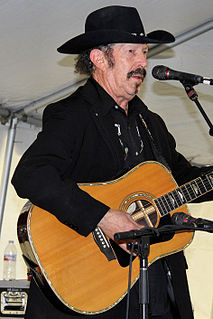A Quote by Michael Bassey
Buy a gift for a dog, and you'll be amazed at the way it will dance and swerve its tail, but if don't have anything to offer to it, it won't even recognize your arrival; such are the attributes of fake friends.
Related Quotes
A dog will recognize his master in whatever way he dresses. The master may dress in robes, suit and tie, or stand naked, but the dog will always recognize his master. If we cannot recognize God, our beloved master, when he comes in a different dress from another religion, then we are less than that dog.
Our moral reasoning is plagued by two illusions. The first illusion can be called the wag-the-dog illusion: We believe that our own moral judgment (the dog) is driven by our own moral reasoning (the tail). The second illusion can be called the wag-theother-dog's-tail illusion: In a moral argument, we expect the successful rebuttal of an opponent's arguments to change the opponent's mind. Such a belief is like thinking that forcing a dog's tail to wag by moving it with your hand will make the dog happy.
You may never learn the names of any of the people you talk to in a dog park, even after many, many hours spent there with them, and many hours of conversation. But if - knock on wood - anything should ever happen to your dog, these nameless non-strangers will rally, sympathize, offer to help, and hold your hand. I know this from experience.
The social intuitionist model offers an explanation of why moral and political arguments are so frustrating: because moral reasons are the tail wagged by the intuitive dog. A dog’s tail wags to communicate. You can’t make a dog happy by forcibly wagging its tail. And you can’t change people’s minds by utterly refuting their arguments.
You have to write a book because you believe it has helped you, because you believe it has helped others personally and you are dying to share with it others because you know it will add value to their lives. You write it for them like a gift. You don't want anything from them. You don't want them to do anything for you. You don't even care if they all share the book with their friends, they don't all have to buy them. You're just dying to share this idea with people. Your challenge is to write it in a way that is compelling, enjoyable to read so that they will get the idea.
A dog will make eye contact. A cat will, too, but a cat's eyes don't even look entirely warm-blooded to me, whereas a dog's eyes look human except less guarded. A dog will look at you as if to say, "What do you want me to do for you? I'll do anything for you." Whether a dog can in fact, do anything for you if you don't have sheep (I never have) is another matter. The dog is willing.
I remember when I was a teenager thinking my girlfriend was cheating on me, and going around riling myself up. Pretending to cry. It was totally illegitimate-I actually didn't feel anything. I went to some pub and then went crying all the way home. And I got into my dog's bed. I was crying and holding on to the dog. I woke up in the morning, and the dog was looking at me like, 'You're a fake.'
Many dogs can understand almost every word humans say, while humans seldom learn to recognize more than half a dozen barks, if that. And barks are only a small part of the dog language. A wagging tail can mean so many things. Humans know that it means a dog is pleased, but not what a dog is saying about his pleasedness.





































